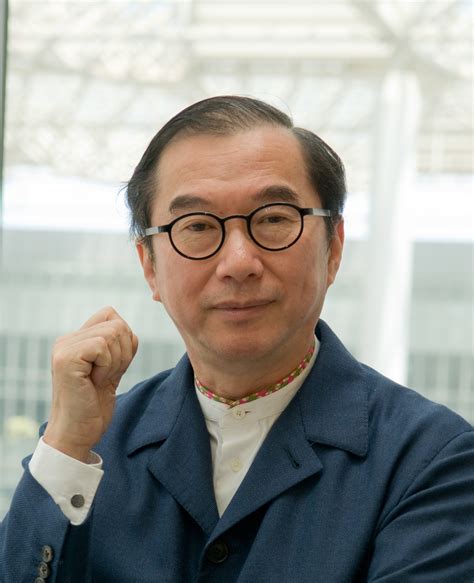A Quote by Max Beerbohm
Reverence is a good thing, and part of its value is that the more we revere a man, the more sharply are we struck by anything in him (and there is always much) that is incongruous with his greatness.
Related Quotes
A good laugh is a mighty good thing, and rather too scarce a good thing; the more's the pity. So, if any one man, in his own proper person, afford stuff for a good joke to anybody, let him not be backward, but let him cheerfully allow himself to spend and be spent in that way. And the man that has anything bountifully laughable about him, be sure there is more in that man than you perhaps think for.
The man who has given himself to his country loves it better; the man who has fought for his friend honors him more; the man who has labored for his community values more highly the interests he has sought to conserve; the man who has wrought and planned and endured for the accomplishment of God's plan in the world sees the greatness of it, the divinity and glory of it, and is himself more perfectly assimilated to it.
How much reverence has a noble man for his enemies!--and such reverence is a bridge to love.--For he desires his enemy for himself, as his mark of distinction; he can endure no other enemy than one in whom there is nothing to despise and very much to honor! In contrast to this, picture "the enemy" as the man of ressentiment conceives him--and here precisely is his deed, his creation: he has conceived "the evil enemy," "the Evil One," and this in fact is his basic concept, from which he then evolves, as an afterthought and pendant, a "good one"--himself!
It is of dangerous consequence to represent to man how near he is to the level of beasts, without showing him at the same time his greatness. It is likewise dangerous to let him see his greatness without his meanness. It is more dangerous yet to leave him ignorant of either; but very beneficial that he should be made sensible of both.
It is dangerous to explain too clearly to man how like he is to the animals without pointing out his greatness. It is also dangerous to make too much of his greatness without his vileness. It is still more dangerous to leave him in ignorance of both, but it is most valuable to represent both to him. Man must not be allowed to believe that he is equal either to animals or to angels, nor to be unaware of either, but he must know both.
The Honorable Elijah Muhammad said no matter how much they attacked him and the Nation of Islam under his leadership, they only helped the Nation to grow. So, the more they attacked me and the more I withstood that onslaught, the more thousands of people came out to, at least, hear a man that was being so vilified in the media. When they recognized that they were not hurting but helping me, they decided they wouldn't say anything except to continue to discredit. So, there is a conscious effort not to publicize anything that the Nation is doing of value.
His books were part of him. Each year of his life, it seemed, his books became more and more a part of him. This room, thirty by twenty feet, and the walls of shelves filled with books, had for him the murmuring of many voices. In the books of Herodotus, Tacitus, Rabelais, Thomas Browne, John Milton, and scores of others, he had found men of face and voice more real to him than many a man he had met for a smoke and a talk.
[Fritz Haber's] greatness lies in his scientific ideas and in the depth of his searching. The thought, the plan, and the process are more important to him than the completion. The creative process gives him more pleasure than the yield, the finished piece. Success is immaterial. "Doing it was wonderful." His work is nearly always uneconomical, with the wastefulness of the rich.
The young mouse's eyes snapped open, clear and bright. He swung the ancient sword high and struck at the giant adder. He struck for Redwall! He struck against evil! He struck for Martin! He struck for Log-a-Log and his shrews! He struck for dead Guosim! He struck as Methuselah would have wanted him to! He struck against Cluny the Scourge and tyranny! He struck out against Captain Snow's ridicule! He struck for the world of light and freedom! He struck until his paws ached and the sword fell from them!
Here's the thing: the unit of reverence in Europe is the family, which is why a child born today of unmarried parents in Sweden has a better chance of growing up in a house with both of his parents than a child born to a married couple in America. Here we revere the couple, there they revere the family.
Farewell, a long farewell to all my greatness! This is the state of man: today he puts forth The tender leaves of hope, tomorrow blossoms, And bears his blushing honours thick upon him: The third day comes a frost, a killing frost, And - when he thinks, good easy man, full surely His greatness is a-ripening - nips his root, And then he falls, as I do.
It wasn't only that you didn't see him anymore, meet him anymore. You saw his absence and encountered it as something tangible. His not being there was like the sharply outlined emptiness of a photo with a figure cut out precisely with scissors and now the missing figure is more important, more dominant than all others.



































